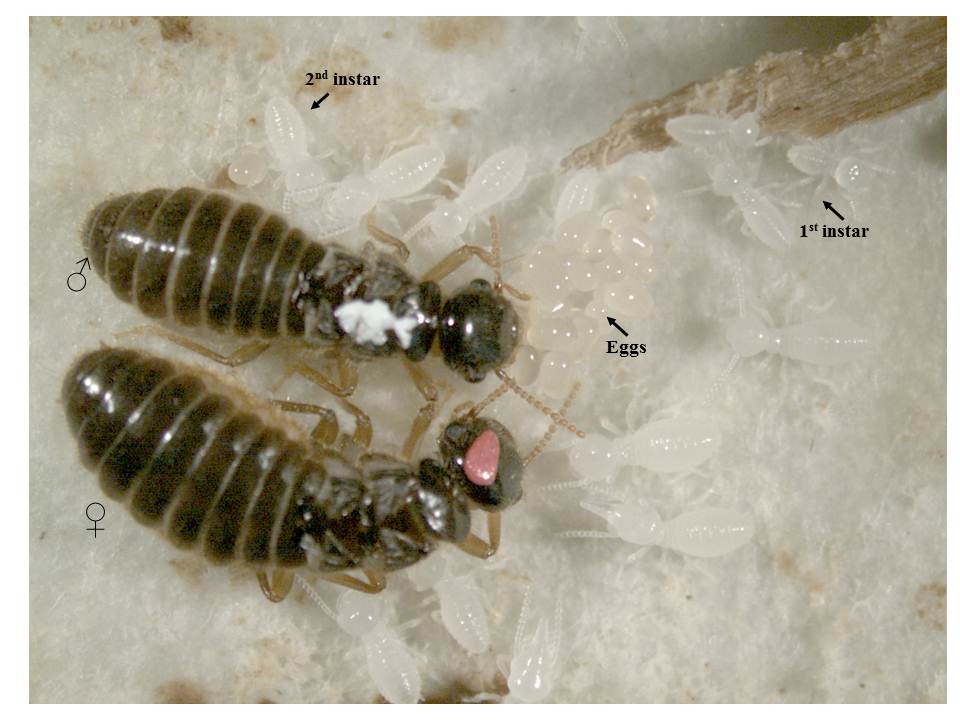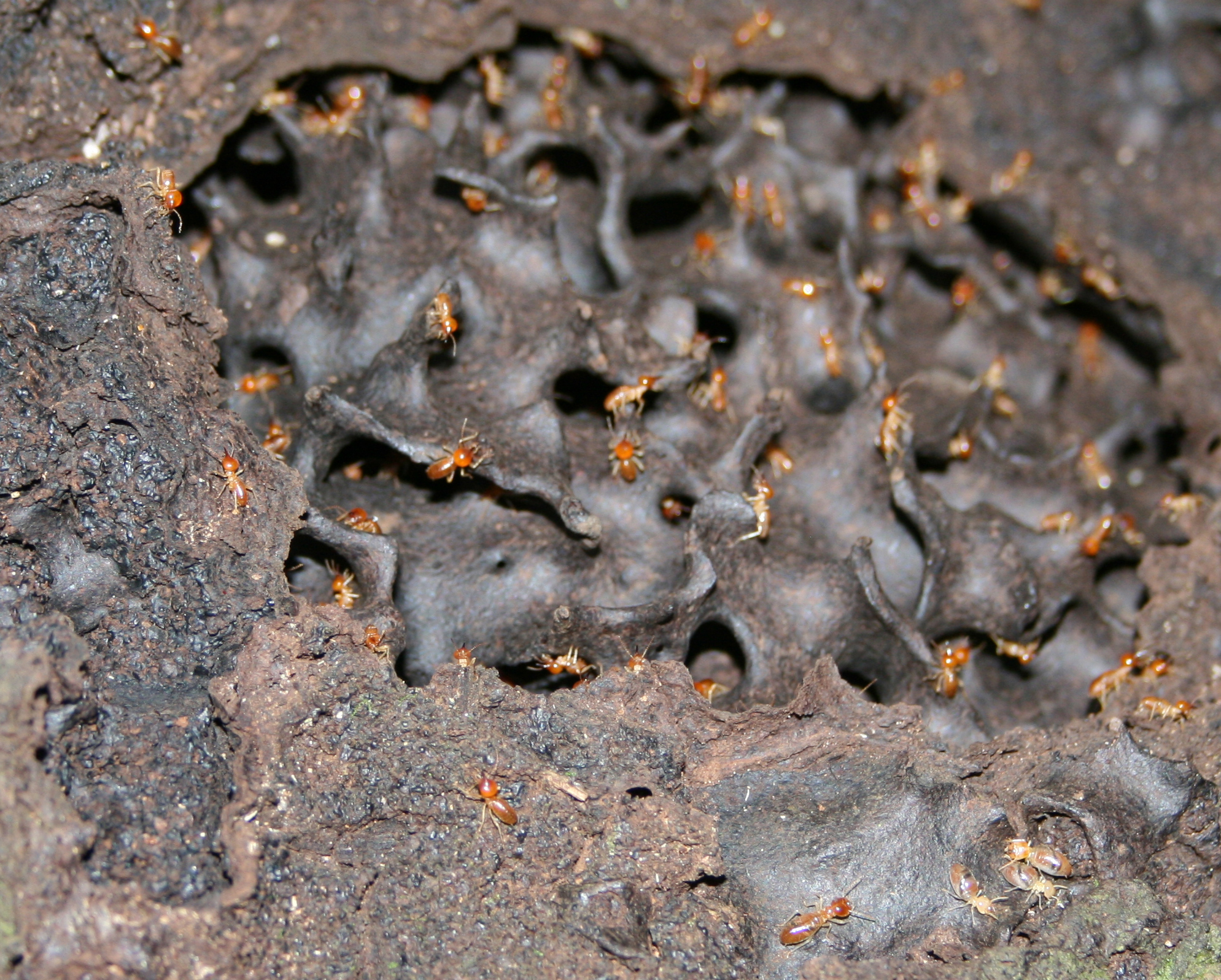Termites are social insects and the large colonies and close quarters that beget their lifestyle leads to higher risk of exposure to harmful pathogens. The impact of these pathogens on termite colony formation was the topic of a recent study led by MES graduate student Erin Cole and advisor Rebecca Rosengaus. The study, published in the journal Frontiers in Ecology and Evolution, investigated how bacterial infection impacts the way that termite kings and queens allocate resources to offspring. Infection led to reduced parental survival and resulted in production of fewer eggs, but indicated that queens could opt to invest in egg quality (over quantity) when experiencing pathogenic stress. This work helps us understand the role that pathogens play as agents of natural selection.


